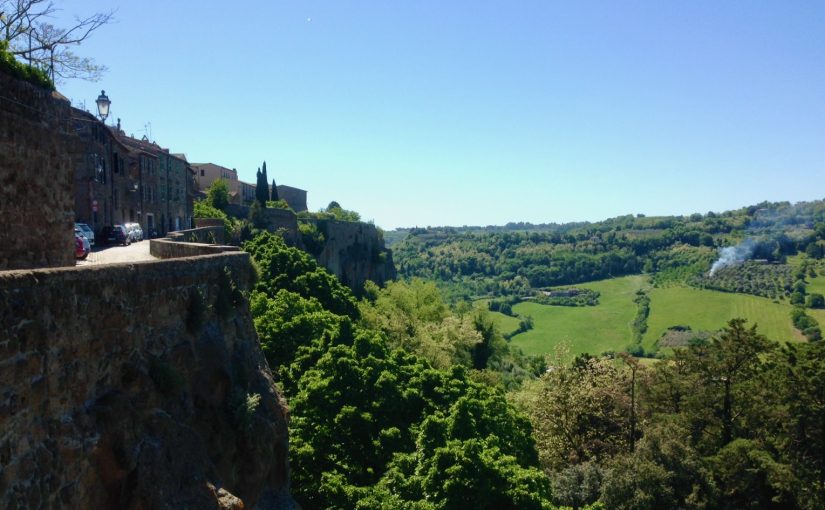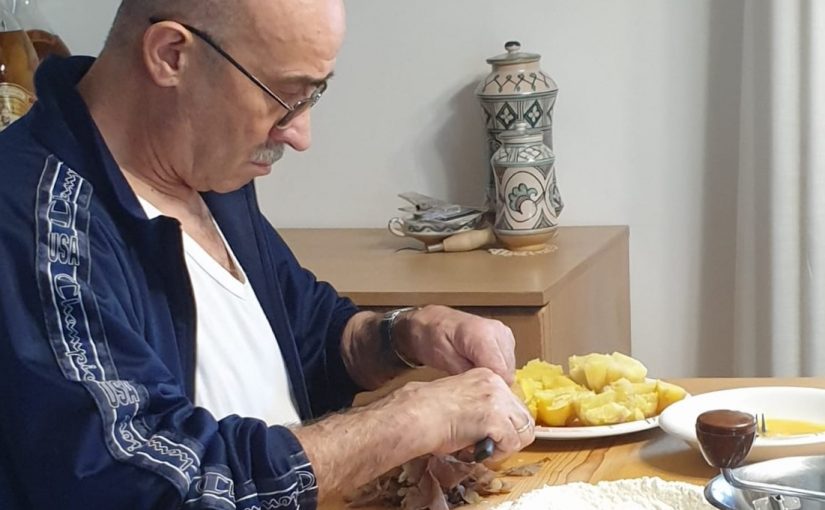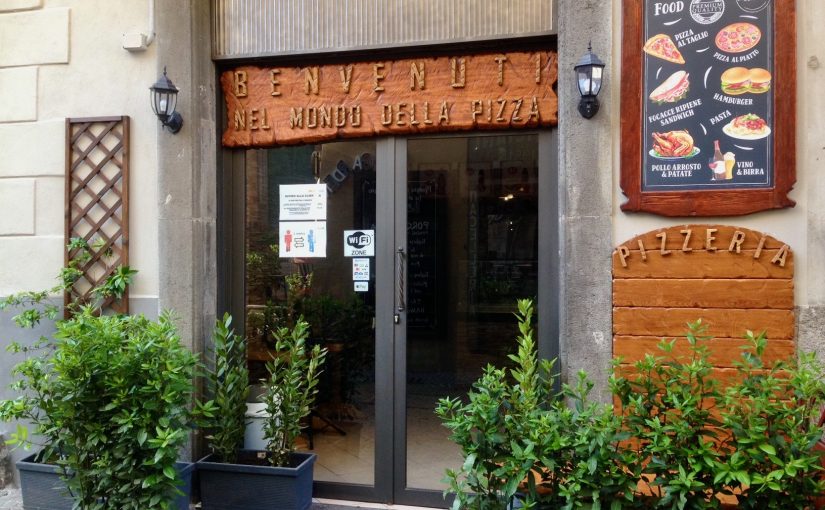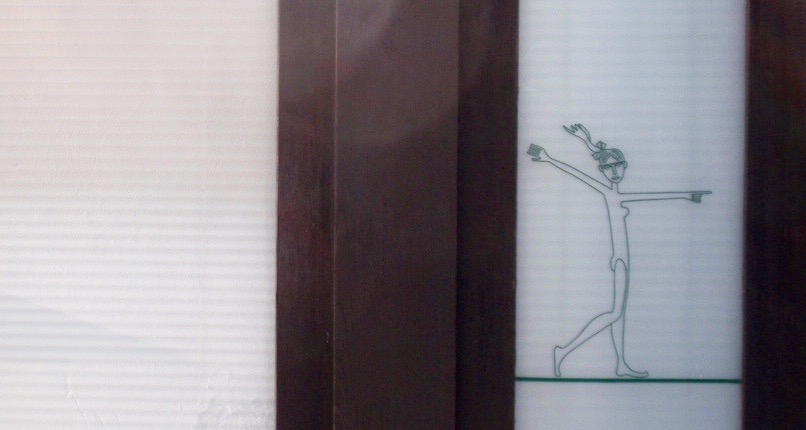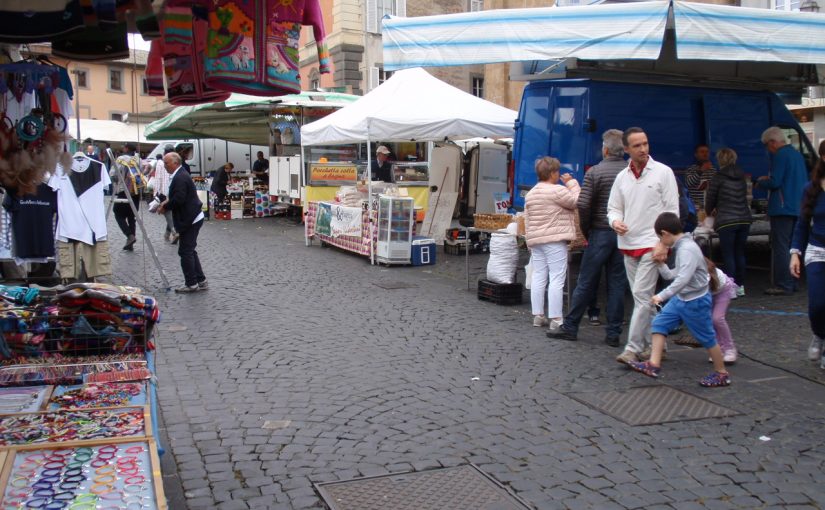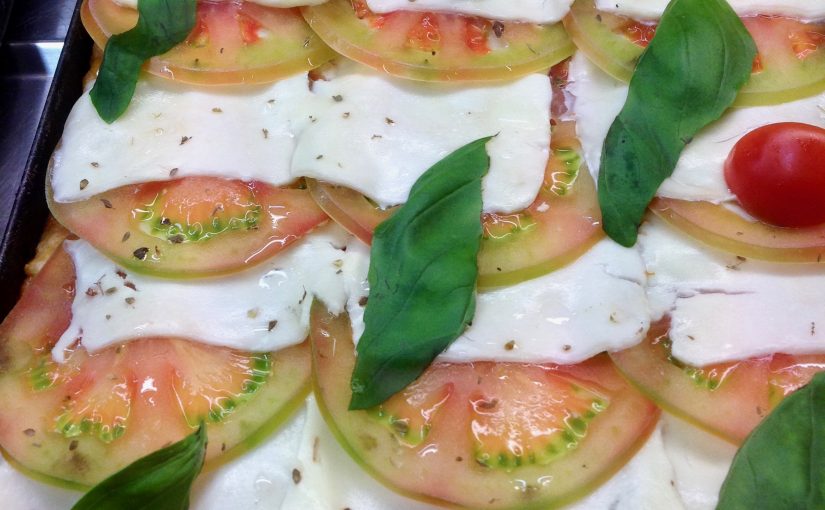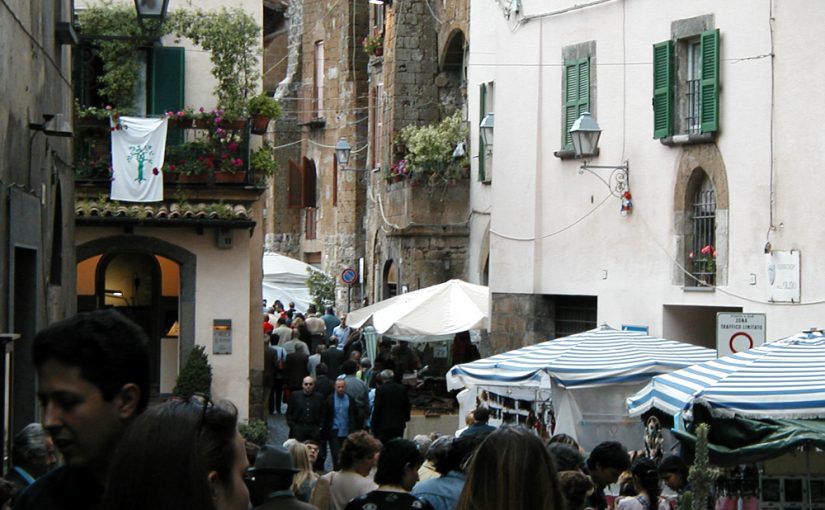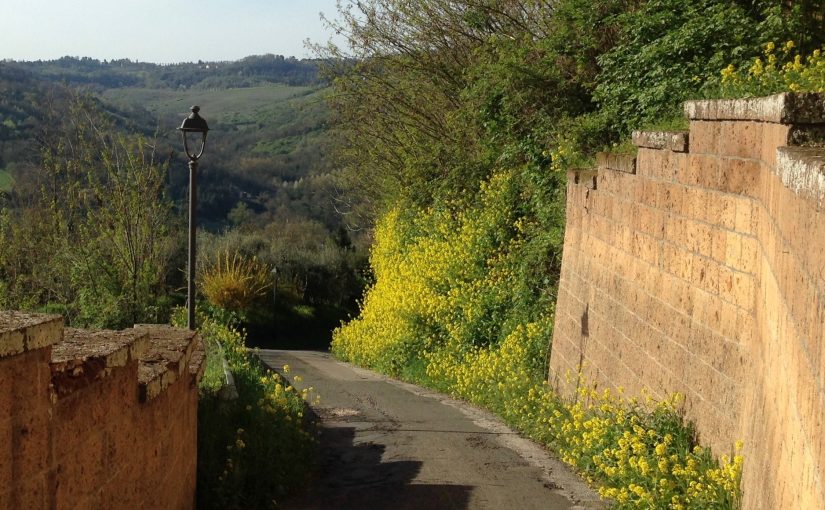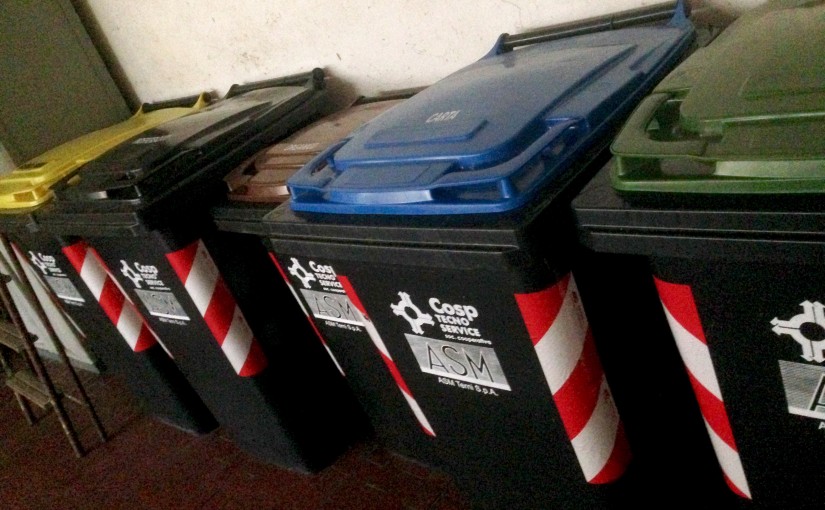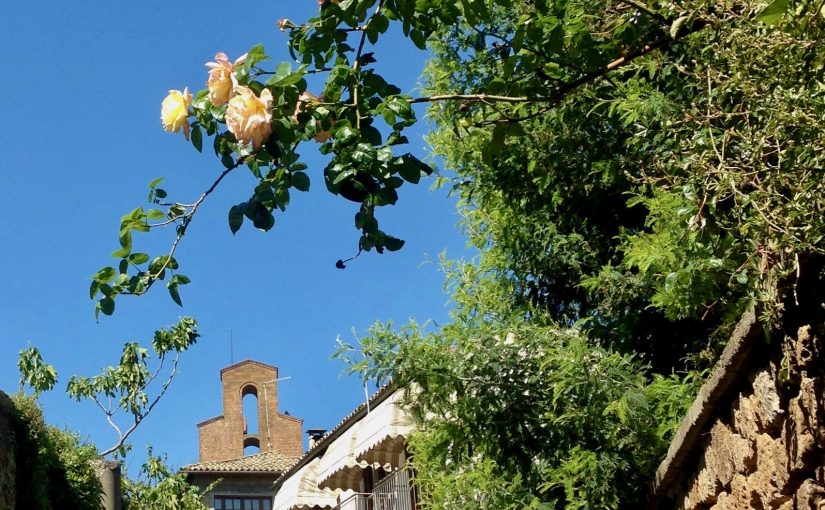There were quite a number of people out during my morning walk, fewer than I was prepared for, but many more than has been usual at any time of day since March 10. Social distancing was generally observed, mask-wearing was spottier. I veered off Corso and kept to the side streets.
I walked to San Giovenale – Orvieto’s oldest church, the current structure dating from 1004 – to check out everyone’s favorite view. It did not disappoint.
In a letter from friends, they described their view of the valley from their home in Porano (a village about fifteen minutes drive outside of Orvieto) as “a thousand shades of green”. The description is also apt in the other direction. Some trees are still in blossom, rain has encouraged new grasses, the spring is gorgeous this year. I’m sure I’m not alone in being relieved that we are able to be out and about to witness its final few arias.
From there, I went left over Porta Maggiore, and uphill past the Colonacci – the panorama following me all the while – and away from cliffside at Vicolo dei Medici. The sun was strong, the hill was as steep as ever, and everything about it was more intense than ever could be in my courtyard at home.
I passed Umbria Top where Svjetlana has a wine shop. It’s open while others are still closed. There must be nuances at play beyond the broad dictates of the national announcement.
“Bentornata, cara!”
“Grazie. Returning to regular sales, but I’ve been shipping online orders the whole time, so it hasn’t been too bad.”
“Good for you!”
“You know,” she said with a look of motherly concern, “when you’re on a quiet street, and no one else is around, it would be a good idea to lower the mask.”
“I’ve been wondering if I should.”
“You should! It’s healthier that way. Breathing in your own damp exhalations is not good for you.”
A bit further on, Antonny was in Blue Bar freshening up. A number of places have decided to use the time off to improve and repair. Something happens when you take away all the people; the rotten wood and mildewed awnings are suddenly and starkly apparent. A policewoman stood in his doorway. She seemed to be explaining Phase Two to Antonny, what he could do and when. But I’m just speculating.
Back on Corso, more were out than before. The pizzeria/pasticceria has moved its counter to open directly onto the street. Montanucci, still dark. Some activity in various shops, but only by their proprietors – maybe relieving horizontal surfaces of an almost two months’ collection of dust.
I saw Kamal, the pizzaiolo, last night during my walk.
“I’m opening tomorrow!”
“You are? The other day you said the 18th.”
“Umbria is doing okay, and details are being sorted out by region, even by comune. Anyway, only for takeout, but I don’t have much eat-in business anyhow, so no difference really.”
“Great! I’ll see you tomorrow.”
So, for lunch I steamed some broccoli then went around the corner for a few slices. Kamal had laid out his counter as if the entire town were expected for lunch. From the look of things, I may have been his first customer. Given that foot traffic is still light that far down on Corso, and there is no way for word-of-mouth to spread, he may have been lucky to have had even my patronage.
After eating, I ventured out again. No one. I began to wonder if permission to walk had been rescinded. No, it was just lunchtime when everyone eats at home, because there is no other choice. The pizzerias were closed, too. Their clientele had taken out all they needed.
I wandered towards the Duomo. The family of cats near Al Mercato was lounging anywhere they damn pleased, and seemed very happy indeed to be doing so. As they normally glean much of their fare from falling scraps at the cafes in the area, I wondered who has been feeding them. They all look healthy, so someone has.
Later, just because I could, I went to Metà for a few things.
Now, something remarkable I’ve noticed living here is how seldom you see a local kid throw a tantrum or raise a fuss. Kids here are in society from their first or second week of life, they are brought up by dozens of affectionate friends and relatives, and seem like a remarkably secure lot.
Well, given that no one can leave their region, it’s pretty safe that the four-year-old boy having a meltdown on Via delle Donne was local. He was not happy about wherever he and his parents were going. He dug in his heels every third step, and yelled his dear head off. His parents were trying to strike a balance between firm and understanding, and were doing well, but it was not buying cooperation.
He broke my heart, this little guy. How can a kid whose family is a host of people he sees every day possibly understand why they have all, save his parents, gone into hiding? Then suddenly, he’s on the street again, only they’re empty; empty of his friends, his innumerable aunts and uncles, his favorite dogs and cats. What is going on? “I don’t know,” he seemed to be saying, “but I don’t want to go any further. And I won’t.”
His parents, the few others watching, and myself included, know exactly how the boy feels, and wish we had a quick answer. We don’t. But we have a lot of the same questions.
I passed an edicola and checked out the headlines: “Umbria without recent new cases.” Not overly precise, that announcement, but who can argue with the spirit?
The photo is of the valley as viewed from the wall above Porta Romana.
